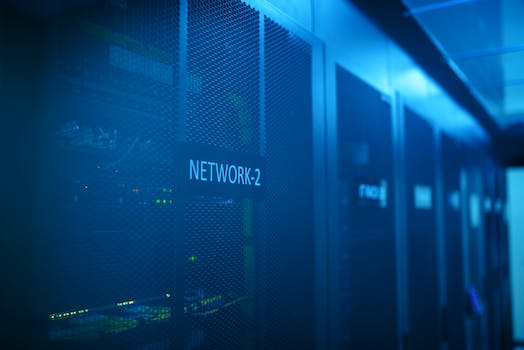-
Table of Contents
- Introduction
- Evaluating the Security of a Hosting Data Center
- Understanding the Different Types of Hosting Data Centers
- Assessing the Connectivity Options of a Hosting Data Center
- Analyzing the Cost of Hosting Data Centers
- Exploring the Location of a Hosting Data Center and its Impact on Performance
- Conclusion
“Secure Your Data with Essential Factors for Choosing the Right Hosting Data Center!”
Introduction
Choosing a hosting data center is an important decision for any business. It is essential to consider a variety of factors when selecting a data center, such as cost, security, reliability, scalability, and customer service. The right data center can provide a secure, reliable, and cost-effective platform for your business’s data and applications. In this article, we will discuss the essential factors to consider when choosing a hosting data center. We will look at the importance of cost, security, reliability, scalability, and customer service, and how they can affect your business’s success. We will also provide tips on how to evaluate data centers and make the best decision for your business.
Evaluating the Security of a Hosting Data Center

Data centers are the backbone of the modern digital world. They provide the infrastructure for businesses to store and access their data, applications, and services. As such, it is essential that data centers are secure and reliable. In this blog post, we will discuss the key elements to consider when evaluating the security of a hosting data center.
First and foremost, it is important to consider the physical security of the data center. This includes the physical access controls, such as locks, cameras, and guards. It is also important to consider the environmental controls, such as temperature and humidity, to ensure that the data center is properly protected from natural disasters and other external threats.
Next, it is important to evaluate the data center’s network security. This includes the use of firewalls, intrusion detection systems, and other security measures to protect the data center from malicious attacks. It is also important to consider the data center’s backup and disaster recovery plans to ensure that data is protected in the event of an emergency.
Finally, it is important to evaluate the data center’s compliance with industry standards and regulations. This includes ensuring that the data center is compliant with the Payment Card Industry Data Security Standard (PCI DSS) and other relevant regulations.
By taking the time to evaluate the security of a hosting data center, businesses can ensure that their data is safe and secure. This will help to protect their customers’ data and ensure that their business operations remain uninterrupted.
Understanding the Different Types of Hosting Data Centers
Data centers are the backbone of the internet, providing the infrastructure necessary to store and manage data for businesses and organizations. With the increasing demand for data storage and processing, there are a variety of hosting data centers available to meet the needs of different organizations. Understanding the different types of hosting data centers can help you make the best decision for your business.
The most common type of hosting data center is the traditional data center. These data centers are typically owned and operated by a single organization and are used to store and manage their own data. Traditional data centers are typically located in a single physical location and are designed to provide a secure environment for data storage and processing.
Another type of hosting data center is the cloud data center. Cloud data centers are hosted by a third-party provider and are used to store and manage data for multiple organizations. Cloud data centers are typically located in multiple physical locations and are designed to provide a secure environment for data storage and processing.
The third type of hosting data center is the colocation data center. Colocation data centers are hosted by a third-party provider and are used to store and manage data for multiple organizations. Colocation data centers are typically located in multiple physical locations and are designed to provide a secure environment for data storage and processing.
Finally, the fourth type of hosting data center is the managed hosting data center. Managed hosting data centers are hosted by a third-party provider and are used to store and manage data for multiple organizations. Managed hosting data centers are typically located in multiple physical locations and are designed to provide a secure environment for data storage and processing.
Each type of hosting data center has its own advantages and disadvantages. Understanding the different types of hosting data centers can help you make the best decision for your business. It is important to consider the size of your organization, the type of data you need to store and manage, and the security requirements of your organization when selecting a hosting data center.
Assessing the Connectivity Options of a Hosting Data Center
When it comes to hosting data centers, connectivity is a key factor to consider. A data center’s connectivity options can determine the speed and reliability of the services it provides. In this blog post, we’ll discuss the different connectivity options available and how to assess them when choosing a hosting data center.
The first thing to consider is the type of connection available. Data centers typically offer either wired or wireless connections. Wired connections are typically faster and more reliable than wireless connections, but they require physical access to the data center. Wireless connections, on the other hand, are more convenient but may be slower and less reliable.
Next, you should consider the speed of the connection. Data centers typically offer a range of speeds, from low-speed connections to high-speed connections. The speed you choose will depend on the type of services you plan to offer. For example, if you plan to host a website, you’ll need a faster connection than if you plan to host a file server.
Finally, you should consider the reliability of the connection. Data centers typically offer a range of reliability options, from low-reliability connections to high-reliability connections. The reliability you choose will depend on the type of services you plan to offer. For example, if you plan to host a website, you’ll need a more reliable connection than if you plan to host a file server.
When assessing the connectivity options of a hosting data center, it’s important to consider the type of connection, the speed of the connection, and the reliability of the connection. By taking these factors into account, you can ensure that you choose a data center that provides the best possible services for your needs.
Analyzing the Cost of Hosting Data Centers
Data centers are essential for businesses that rely on the internet to store and process data. But hosting a data center can be expensive. In this blog post, we’ll explore the costs associated with hosting a data center and how businesses can reduce their expenses.
The cost of hosting a data center depends on several factors, including the size of the facility, the type of equipment used, and the amount of power needed to run the center. The cost of the facility itself can range from a few thousand dollars to millions of dollars, depending on the size and complexity of the center. Additionally, businesses must factor in the cost of the equipment, such as servers, storage, and networking equipment, as well as the cost of powering the center.
Businesses can reduce their data center costs by using cloud computing services. Cloud computing services allow businesses to store and process data without having to purchase and maintain their own data center. This can significantly reduce the cost of hosting a data center, as businesses only pay for the services they use.
Businesses can also reduce their data center costs by using energy-efficient equipment. By using energy-efficient servers, storage, and networking equipment, businesses can reduce their power consumption and save money on their energy bills. Additionally, businesses can use virtualization technology to reduce the number of physical servers they need to purchase and maintain.
Finally, businesses can reduce their data center costs by using colocation services. Colocation services allow businesses to rent space in an existing data center, which can significantly reduce the cost of hosting a data center.
By understanding the costs associated with hosting a data center and taking steps to reduce those costs, businesses can save money and ensure their data is secure and accessible.
Exploring the Location of a Hosting Data Center and its Impact on Performance
When it comes to hosting data, the location of the data center can have a significant impact on performance. Data centers are the physical infrastructure that store and manage data, and their location can affect the speed and reliability of data access.
Data centers are typically located in areas with reliable power, low risk of natural disasters, and access to high-speed internet. These factors are important for ensuring that data is stored securely and can be accessed quickly. For example, if a data center is located in an area with frequent power outages, it could lead to data loss or slow access times.
The distance between the data center and the user can also affect performance. If the data center is located far away from the user, it can take longer for the data to travel between the two locations. This can lead to slower loading times and a poorer user experience.
Data centers can also be located in different countries, which can have an impact on performance. For example, if a data center is located in a country with strict data privacy laws, it can take longer to access data due to the need for additional security measures.
Finally, the type of data center can also affect performance. Different types of data centers have different levels of performance, so it’s important to choose the right type for your needs. For example, if you need to store large amounts of data, you may want to choose a data center with a high-performance storage system.
When choosing a data center for your hosting needs, it’s important to consider the location, distance, and type of data center. Doing so can help ensure that your data is stored securely and can be accessed quickly and reliably.
Conclusion
Choosing a hosting data center is an important decision for any business. It is essential to consider factors such as location, security, scalability, cost, and customer service when selecting a data center. Additionally, it is important to ensure that the data center is compliant with industry standards and regulations. By taking the time to research and evaluate the various options available, businesses can ensure that they select the best hosting data center for their needs.

![When to visit [destination]: A month-by-month guide When to visit [destination]: A month-by-month guide](https://nishankhatri.xyz/wp-content/uploads/2023/03/79aa6a5be11f2d4f5af462bf3e6addb2-300x200.jpeg)













